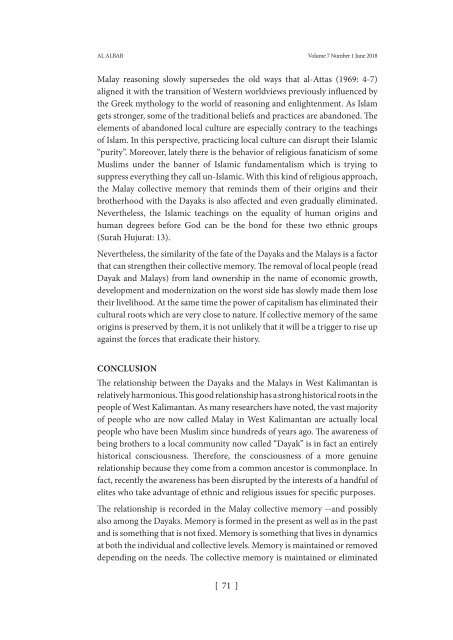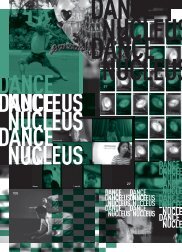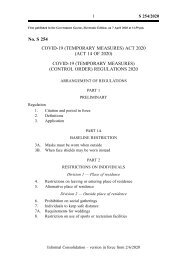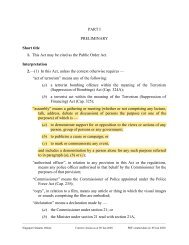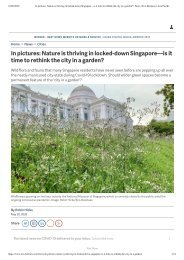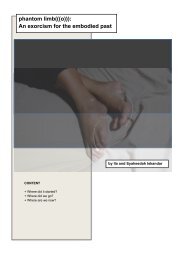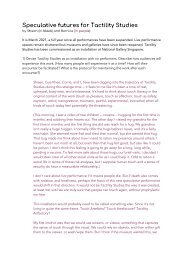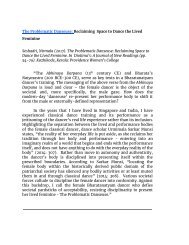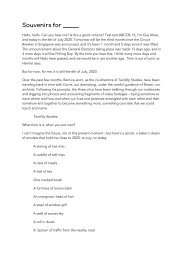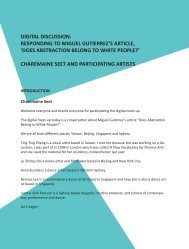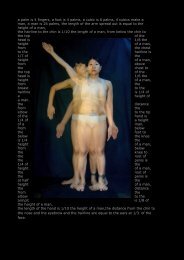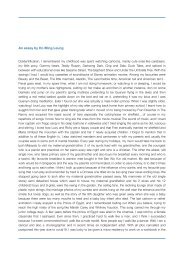Hermansyah Brotherhood
- No tags were found...
You also want an ePaper? Increase the reach of your titles
YUMPU automatically turns print PDFs into web optimized ePapers that Google loves.
AL ALBAB Volume 7 Number 1 June 2018<br />
Malay reasoning slowly supersedes the old ways that al-Attas (1969: 4-7)<br />
aligned it with the transition of Western worldviews previously influenced by<br />
the Greek mythology to the world of reasoning and enlightenment. As Islam<br />
gets stronger, some of the traditional beliefs and practices are abandoned. The<br />
elements of abandoned local culture are especially contrary to the teachings<br />
of Islam. In this perspective, practicing local culture can disrupt their Islamic<br />
“purity”. Moreover, lately there is the behavior of religious fanaticism of some<br />
Muslims under the banner of Islamic fundamentalism which is trying to<br />
suppress everything they call un-Islamic. With this kind of religious approach,<br />
the Malay collective memory that reminds them of their origins and their<br />
brotherhood with the Dayaks is also affected and even gradually eliminated.<br />
Nevertheless, the Islamic teachings on the equality of human origins and<br />
human degrees before God can be the bond for these two ethnic groups<br />
(Surah Hujurat: 13).<br />
Nevertheless, the similarity of the fate of the Dayaks and the Malays is a factor<br />
that can strengthen their collective memory. The removal of local people (read<br />
Dayak and Malays) from land ownership in the name of economic growth,<br />
development and modernization on the worst side has slowly made them lose<br />
their livelihood. At the same time the power of capitalism has eliminated their<br />
cultural roots which are very close to nature. If collective memory of the same<br />
origins is preserved by them, it is not unlikely that it will be a trigger to rise up<br />
against the forces that eradicate their history.<br />
CONCLUSION<br />
The relationship between the Dayaks and the Malays in West Kalimantan is<br />
relatively harmonious. This good relationship has a strong historical roots in the<br />
people of West Kalimantan. As many researchers have noted, the vast majority<br />
of people who are now called Malay in West Kalimantan are actually local<br />
people who have been Muslim since hundreds of years ago. The awareness of<br />
being brothers to a local community now called “Dayak” is in fact an entirely<br />
historical consciousness. Therefore, the consciousness of a more genuine<br />
relationship because they come from a common ancestor is commonplace. In<br />
fact, recently the awareness has been disrupted by the interests of a handful of<br />
elites who take advantage of ethnic and religious issues for specific purposes.<br />
The relationship is recorded in the Malay collective memory --and possibly<br />
also among the Dayaks. Memory is formed in the present as well as in the past<br />
and is something that is not fixed. Memory is something that lives in dynamics<br />
at both the individual and collective levels. Memory is maintained or removed<br />
depending on the needs. The collective memory is maintained or eliminated<br />
[ 71 ]


